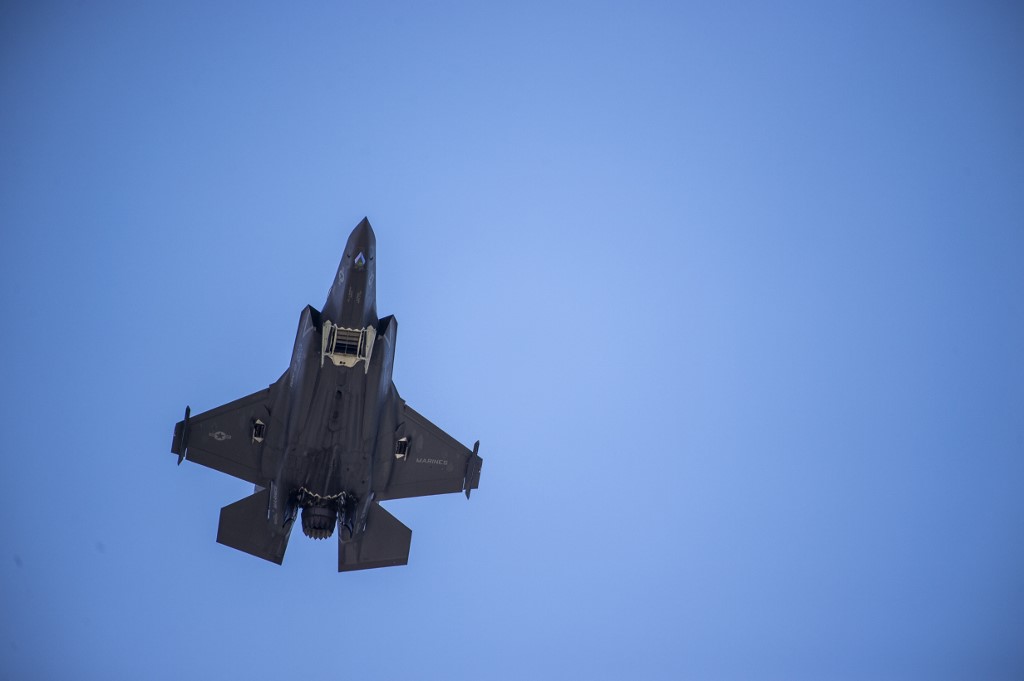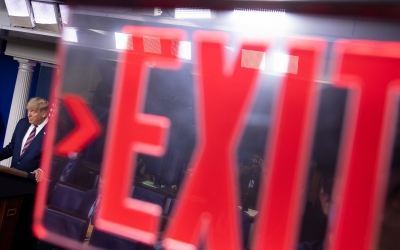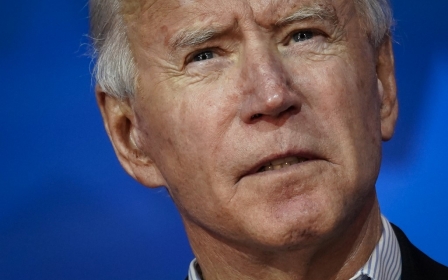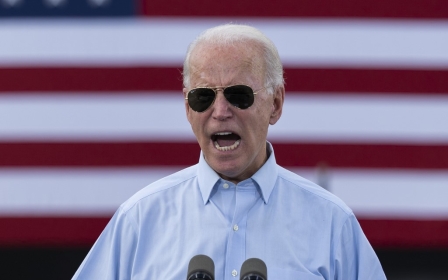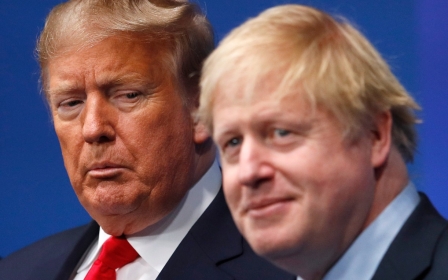US elections 2020: Trump is no aberration, he's the ugliness in America's soul
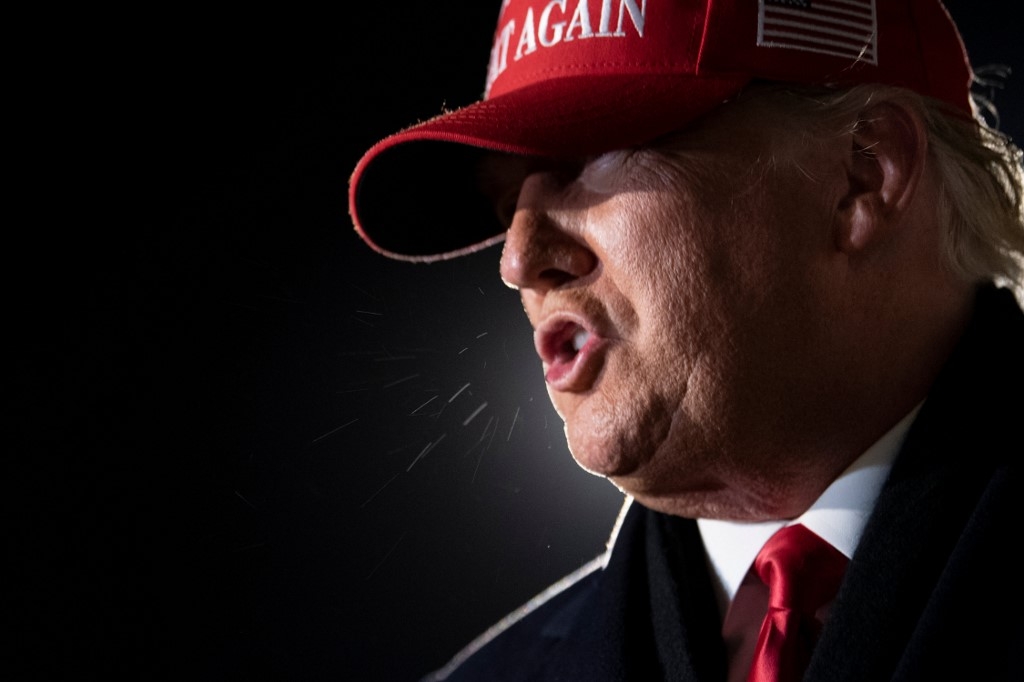
If Joe Biden was right and the 2020 presidential elections were a contest over the soul of America, then his victory is bittersweet. With almost half of the votes cast for Donald Trump, he is undeniably very much a part of the American soul.
In the words of Princeton Professor Eddie Glaude, Trump is not an aberration, but a reflection of the ugliness that very much is, and always has been, a part of us. While the US may not yet be ready to grapple with this reality, the rest of the world can no longer afford to live in denial.
Around the world, many hoped that the lies we have told ourselves of our American innocence - the lies that form the bedrock of American exceptionalism and neatly separate us from the desperate impulses that brought forward Trump - would prove true. They didn’t.
Almost eight million more Americans voted for Trump this past Tuesday than they did in 2016. They saw the divisions he fuelled, the xenophobia he embraced, the children he caged, the white supremacists he refused to condemn, and the pandemic he bungled; and they weighed that against the tax cuts they won, the conservative Supreme Court judges he appointed, the climate chaos they can ignore, and the punishments he inflicted on the “liberal elites”. They decided they wanted four more years of Trump.
The rest of the world must come to terms with the probability that the US will produce more Trumps
Trump did not just do better with Republicans and white voters. He also won more Black and Hispanic votes than in the last election. Indeed, unlike 2016, when no one knew how he would govern, his supporters had no doubts about his agenda and style this time around.
New MEE newsletter: Jerusalem Dispatch
Sign up to get the latest insights and analysis on Israel-Palestine, alongside Turkey Unpacked and other MEE newsletters
Obviously, Biden secured more votes than any US president in history. But the repudiation of Trump’s narcissism, bullying, xenophobia and utter lack of empathy - which would have confirmed that he was an inexplicable aberration - was not achieved.
This is not a critique of Biden, who deserves credit for his important victory. Rather, it’s an assertion that Biden could not have done much better than he did precisely because Trump is not a malign foreign implant into an otherwise innocent American landscape. He is a part of this landscape and has, as a result, a natural constituency within it.
Trump reflects the part of the American psyche that believes it must win - that it is entitled to win - by any means necessary. Rules are for others; the losers. Proudly breaking them doesn’t mean that you are wrong or bad. It means that you are a winner. Many countries in the world are very familiar with this aspect of the American soul.
US military dominance
While Americans must find the courage to grapple with the reality of their soul, the rest of the world must come to terms with the probability that the US will produce more Trumps.
Relying on an American security umbrella takes on an entirely new meaning in this context. European, Asian and Middle Eastern powers have long benefitted from US eagerness to uphold security and stability globally, though the results of US military dominance are increasingly problematic. Countries have happily stepped aside and let the US both provide security and shoulder its cost.
In 2018, for instance, 13 percent of the defence department’s base budget - $81bn - was spent on protecting global oil supplies, mostly in the Gulf. Yet, only 15 percent of US oil imports came from the Gulf in 2018. Most of the Gulf oil the US protected went to Asia: 40 percent of China’s oil imports are from the Middle East, while 76 percent of the oil shipped through the Strait of Hormuz in 2017 went to Asian markets more broadly.
American taxpayers have effectively been subsidising Asian oil consumption. A similar situation exists in Europe, where wealthy European countries still rely on US protection instead of investing more in their own defences.
While Americans have long complained about this - Trump calls it “free-riding” - European and Asian countries have had few incentives to behave differently, since US presidents have tended to be too enamoured with their global military empire to make true on their threats of withdrawing military support and protection.
Shifting geopolitics
However clumsily and at times unfairly, Trump was the first president who tried to make true on the demands for greater burden-sharing and reduced American security obligations.
US allies, believing Trump was an aberration, opted to wait him out. In a few years, he would be gone, they reasoned, and the country would return to “normalcy”. Yet, slowly realising that Trump is not a fluke, the incentive structure of US security partners may now begin to shift.
To continue to put all of their eggs in the American security basket, and to expect the US to carry on providing all kinds of security umbrellas globally, is nothing short of strategic malpractice.
Too many countries are hopelessly dependent on the US, and hopelessly ill-prepared to make necessary adjustments in the defence sphere. This dependence has long been unhelpful to the US, which has had to shoulder too much of the cost and defend too many countries.
Now, Asian, European and Middle Eastern partners of the US may finally realise that having their security completely bound to an increasingly divided and unpredictable country - which is long overdue for some serious soul-searching - may not be too good for them either.
Instead of waiting for the next Trump to arrive, US strategic partners and Biden should proactively begin earnest deliberations on a transition away from excessive and unfair reliance on US military largesse. They may have less time than they think.
The views expressed in this article belong to the author and do not necessarily reflect the editorial policy of Middle East Eye.
Middle East Eye delivers independent and unrivalled coverage and analysis of the Middle East, North Africa and beyond. To learn more about republishing this content and the associated fees, please fill out this form. More about MEE can be found here.



